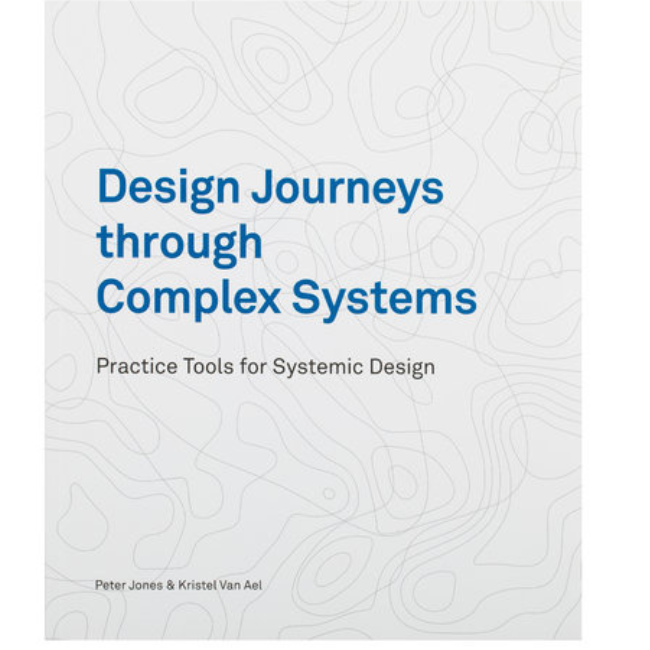The first practitioner handbook for systemic design practice
Design Journeys was written as an accessible tourbook style, a handbook for the journeys and many destinations of collaborative design for complex systems and systems change. Its value proposition can be stated as:
This book presents important new developments in systemic design, guided into practitioner pathways that teach the power of visual tools for collaborative dialogue to empower stakeholders to lead designed change in contexts of high social complexity.
Accessibly designed as a launchpad for both new learners and experienced practitioners, Design Journeys Through Complex Systems will affirmatively shift how you, your team, and client projects generate insights about high-complexity problems. With the book’s 30 design techniques presented in context, you will discover powerful insights with stakeholder collaboration, innovative maps to lead system change, and value opportunities in complexity.
We also wrote the book to use ourselves – we’ve been actively using the Toolkit for four years since its launch at RSD7, using informal guidelines and (more recently) Miro boards. We have both been teaching and training with an ever-expanding set of SD tools, using the sources articles, brief handbooks and mixed materials. We believe the book will democratize systemic design, and will help connect service design and systems leadership to a participatory design approach, for the many new contexts we’ve found in practice, such as systems change programs (large-scale transitions, SDGs), public service labs, policy shops, social innovation studios.
Structured across chapters in a seven-stage methodology, Design Journeys uses a distinct design language developed for systemic design cocreation. Built upon the foundations of the authors’ critically acclaimed Systemic Design Toolkit, Design Journeys illustrates the grammar of systemic design through pragmatic applied tools, updated models, and practical advice. Embrace this comprehensive set of tools for convening work as a systems leadership.
Each chapter defines a flexible journey that guides selected tools for stakeholder cocreation, based on essential questions that explore and design for a complex change challenge.
Design Journeys provides a repertoire of collaborative practice tools for system solutions developed and tested in dozens of projects. The book integrates theory and practices of the 7-stage Systemic Design Toolkit for cocreation, in a single handbook. As a text, it informs practice and teaches relevant theories to help new system leaders coordinate much better design processes for these challenges.









